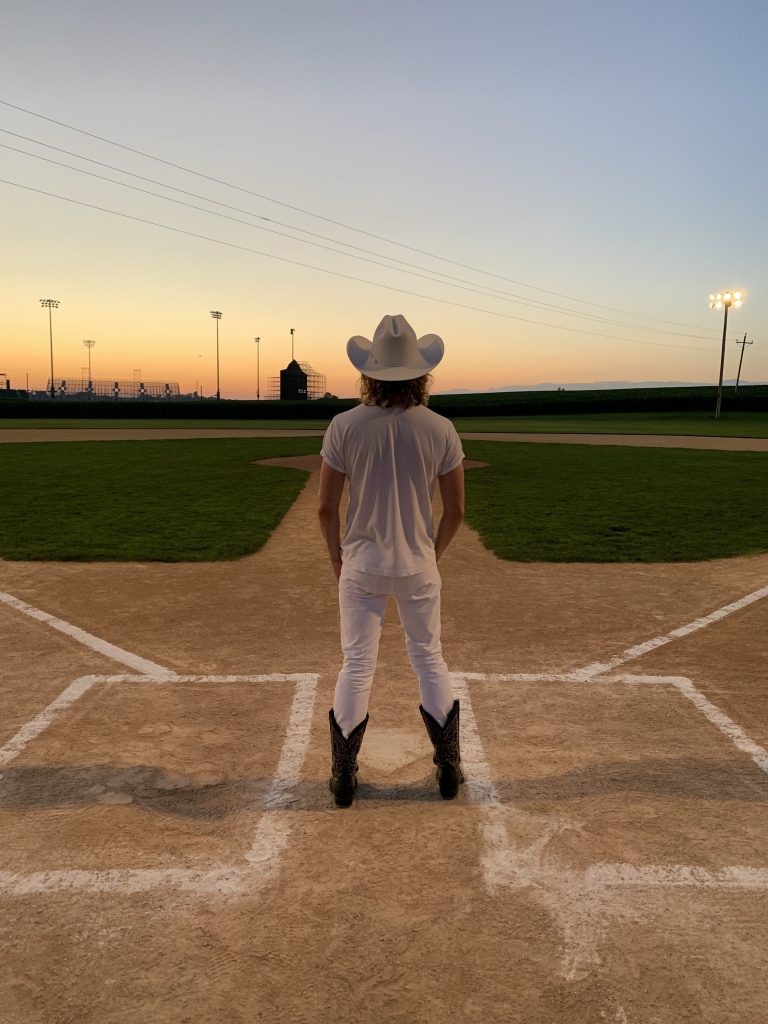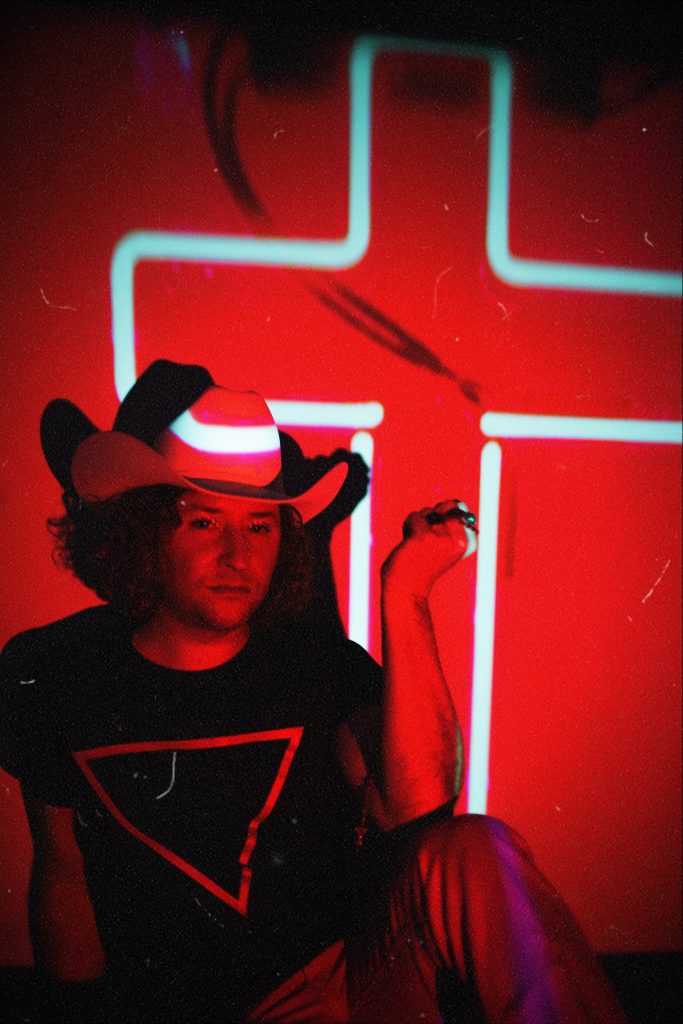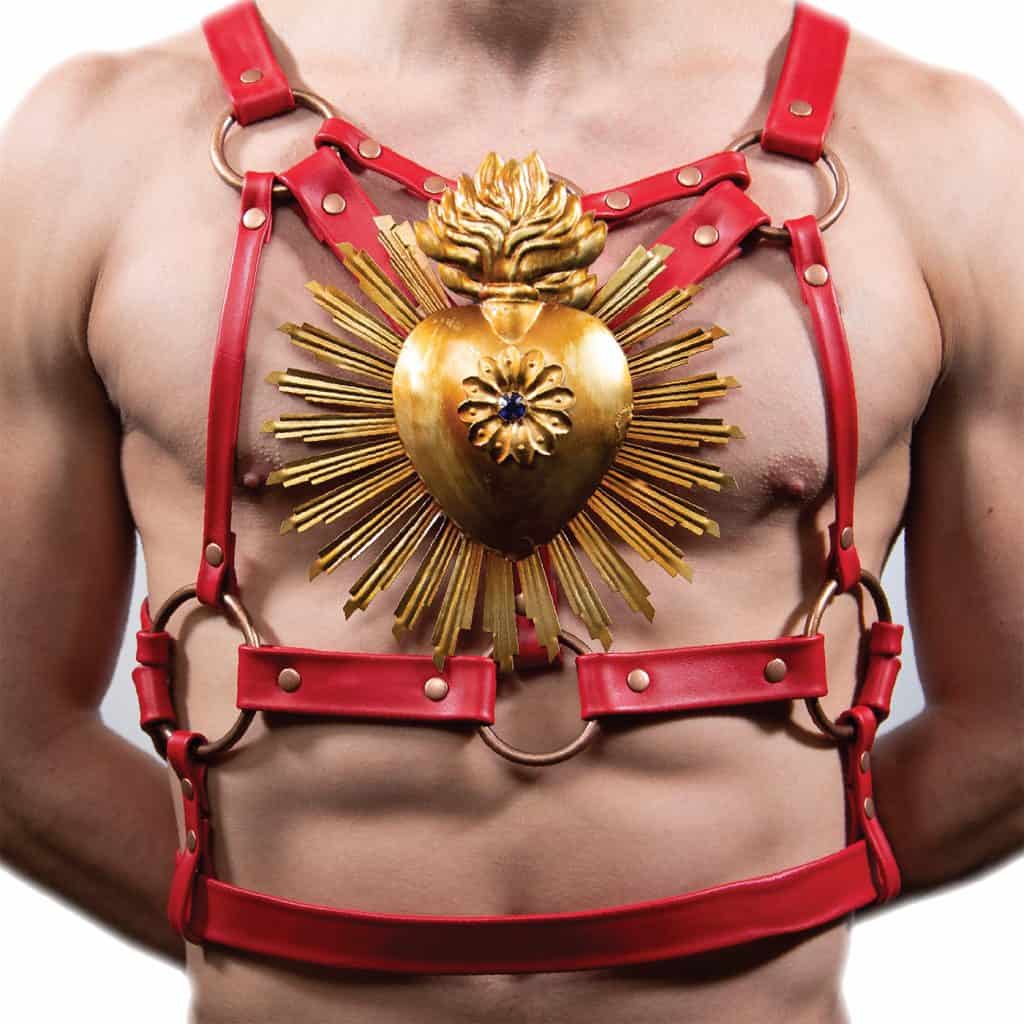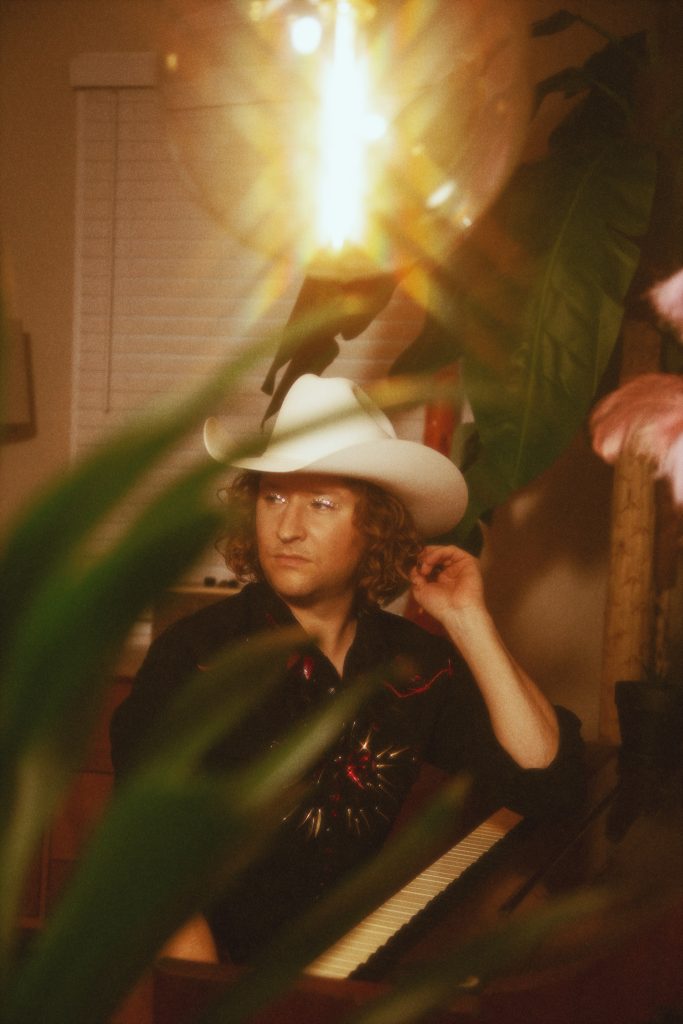Paisley Fields Proudly Drops ‘Limp Wrist’
By Abel Muñoz

CQ favorite Paisley Fields has had a tremendous year thus far that’s included touring with queer icons Lavender Country and being listed in Nashville Scene’s ‘Rising Country Stars to Watch Out For in 2022.’ On top of endless touring, Fields (he/they) has also just released a new full length album, Limp Wrist, on the Don Giovanni label.
Conceptually, the album sits at the intersection of rural queerness and religion, a spot from which Fields has recounted his coming-of-age story with a compelling mix of painful candor, wit, and self-compassion… with moments of palpable disbelief sprinkled in. Limp Wrist reaches new levels of disclosure for Fields, especially as a songwriter who has previously tempered his work with occasional elements of camp. But, as he let us know during a recent chat prior to releasing the album, that’s not much of a factor in this project.
Can you tell us a little about your musical journey?
As Paisley Fields, I started doing that in 2013. But I’ve been playing music pretty much my whole life. My first job was playing piano in the church when I was in middle school. I went to school for piano performance and I’d just been playing my whole life. I was always around country music growing up in rural Iowa. I was always into The Chicks and into Garth Brooks and Reba and… all that stuff.
But as far as finding my place in country music, I don’t know. It’s hard to say. I feel like the genre has changed a lot for the good, even in the past two or three years. And I feel like a lot more doors are opening for me and for people like me. The genre is changing, but I’ve also been doing this a long time and I think part of it is just from putting in the work.
How do you see country music is changing?
I think CMT is really making an effort. Leslie Fram, who works at CMT, I think genuinely cares about showcasing artists who don’t just fit this typical mold that’s been presented in the past. She genuinely cares about intersectionality and showing a diverse range of artists. So CMT has been doing a really great job.
Do you see yourself fitting the country genre more than the Americana genre?
I don’t really feel like I fit nicely into either of those boxes. I think I’m a little bit in both. I consider myself more of a country artist than an Americana artist, but that’s just because of the music that I write, and also the music that I grew up with. I mean… I love Gram Parsons and I think a lot of people would say that he’s Americana. But some people would say he’s country. I don’t know if it matters.
How does existing between genres play out in your music?
Well, I think country music is just about people’s stories, and I think I have a story just like anybody else does. When I write music, I just tell my life experience. I tell my life experiences in the song. Even though I know not everybody’s gonna relate directly to these experiences. I think it’s interesting to hear people’s stories and their perspectives on life that maybe you haven’t experienced. I find music to be interesting that way. I think a lot of the country music that I’ve heard hasn’t been from my perspective, so I’m pretty used to that as a listener.
You’re currently living in Brooklyn, which is a place most don’t usually associate with country music. How has living there impacted your work?
I think every and any environment I’m in is gonna affect my work. I take my life experiences and put that into my music. New York City is a very inspiring place. There’s a lot of country music here. There’s a lot of music here in general, and I think you can write country music without living in the country. A lot of people do it. I grew up in rural Iowa, so that’s where my roots are. Playing country music is what feels the most natural for me. New York is an inspiring place and there are so many different types of people here. I love talking to people and hearing their stories. That’s really what influences and inspires me.

In other interviews, you’ve mentioned that Limp Wrist was influenced by Andy Warhol and the drag scene. How so?
A lot of the Warhol influence was visual. I hadn’t realized that he had a similar upbringing to me, being raised in the Catholic church and also being gay. I went to his exhibit at the Brooklyn Museum and saw all these pieces that really resonated with me, all this Catholic imagery, but also mixed with his queerness. And that’s something that I really explore on the album: what it’s like growing up in the Catholic church, but also being queer. And what it’s like having faith but also knowing that somebody at that church says you’re going to hell. So Warhol’s story and his visual art were very influential on this album.
I’ve worked with a lot of drag artists and I think that over-the-top style is really inspiring and cool. There’s a camp aspect to it, and just… it really pushes boundaries. If you see a good drag queen, you realize they know how to get an audience’s attention.

It’s interesting that you mentioned working with drag queens and some of your work has been described as having elements of high drama and camp. Do you feel like this is really present on Limp Wrist?
No. I mean, it’s still there in some ways. But this album is a lot more raw and real… more vulnerable. I think I really opened myself up more than I ever have before. As far as the writing goes, I kind of laid it all out there.
Does being more vulnerable feel easier to you, or was it frightening?
Well, it was definitely different. It felt, in some ways, a little more scary… I guess, just because there’s nothing left to really hide behind. This is actually about me and my life. I feel like I’ve grown as an artist and I’m really proud of this album. I also got to work with some incredible musicians, and I feel like they brought this album to a level that I definitely couldn’t have done on my own. So, I’m really grateful to them. I did some co-writing with Mya Byrne, Aaron Blue, Wiley Gaby and Chris Houseman.
The album begins with “Black Hawk County Line,” which is sonically different from the other songs. What influenced that?
That was a wild west influenced song. I was on tour with a friend of mine and he said “So the song’s basically about being outed your senior year in high school.” And he asked, “How did that feel?” And I told him, “You know, I just wanted to get away. Like, I wanted to run away. I wanted to disappear.” And he said, “So you’re kind of an outlaw.” And so I wanted to make it into an outlaw sounding song to kind of… take the power back.

There’s a couple songs on the album where you talk about finding your space or finding your home. What does that mean for you as a queer artist or as an individual?
I wrote “Iowa” with Mya [Byrne] and we were talking about how there are all these country songs about loving your hometown and never wanting to leave because it’s perfect. And I didn’t feel that way. I wanted to get out. “Iowa” is about just feeling like you don’t belong in your hometown. I do feel like I have found my home now, and I think it’s about the people that you’re around more than anything else. New York City feels like home to me.
But I think it’s also about finding that space in yourself where you feel comfortable enough in your own skin to be like—I can be myself where I am. I don’t have to hide any aspect of myself. I don’t have to worry about somebody shaming me for being who I am. And—if they do, I don’t care.
“Iowa” is very emotional. It works well as a ballad.
I just felt like the music matched the message of the song. It’s a pretty serious subject we’re talking about. So I wanted to have music that didn’t get in the way of the lyrics. And I feel I achieved that.
I also appreciated the reference to Matthew Shepherd. Are you hoping younger audiences will want to know who he is and connect with that?
Yeah, I hope it keeps his memory alive. I played that song in LA a few weeks ago and an audience member came up to me afterwards and she actually knew Matthew Shepherd. She thanked me for putting him into that song and keeping his memory alive. And I hope that if people haven’t heard of him, they’ll look him up and understand what it was like during that time.
Then there’s “Dial Up Lover,” which is about finding connection during the time of dial up internet. Can you talk about that a little?
So before Snapchat and Instagram, there was this thing called AOL, and people would go on AOL and go into different chat rooms. And there were specific chat rooms you’d go into to meet other people. If you happened to live in a very small town and there were no other gay people or queer people around, you could find them in there. So I would. I’d be going into these chat rooms, like M4M, and just talk to other gay people in Iowa.
I wrote this song with Wiley [Gaby], and we were talking about the days of going on Instant Messenger. Everybody from your hometown would be there and you’d be talking to them. But then, when you went into this other chat room, you could have an alias. You could be a gay person and speak anonymously and make a connection with somebody who’s similar to you without having to be afraid of being outed or exposed.
“Jesus Loving American Guy (Limp Wrist)” juxtaposes religion and politics. What was the inspiration for that?
I think they kind of go hand in hand. If you’re talking about the Catholic religion and then these right wing talking heads, I think they have a lot of the same hypocritical attitudes. That’s something that I wanted to call out because it’s hypocritical, but it’s also very hurtful. And when they say they’re in the business of helping people, they’re not. I just think it needs to be called out.
The album ends with “Tomorrow Finds a Way,” which feels thematically different from the rest. Why did you choose this as the last song?
Even though there are a lot of terrible things in this world, overall I think people wanna be good. And I think that if you find people who love you and support you, it’s a positive thing. I wanted to end on a more uplifting note because I think friendship is really important, especially for queer people. A lot of times, we aren’t even welcomed in their own families. So having really good friends is very important. That is your family; it’s your chosen family. And I don’t think the importance of that can be overstated.
Abel Muñoz (He/Him/His) is originally from Texas and now lives in Nashville New York City. He is passionate about art, but most days he can be found working at a sexual health clinic. He loves 90s country music, especially Linda Ronstadt and George Strait. His ramblings and adventures can be found on various social media platforms (Twitter: @artofspectator, IG: @artofthespectator).